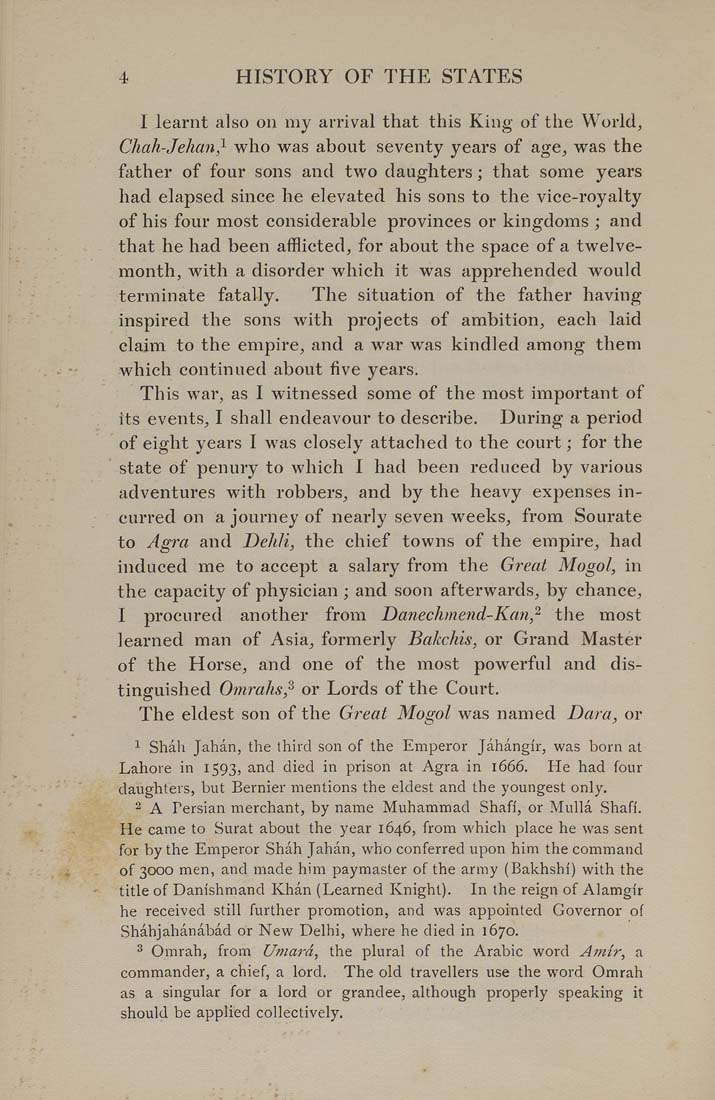4 HISTORY OF THE STATES
I learnt also on my arrival that this King of the World,
Chah-Jehan} who was about seventy years of age, was the
father of four sons and two daughters; that some years
had elapsed since he elevated his sons to the vice-royalty
of his four most considerable provinces or kingdoms ; and
that he had been afflicted, for about the space of a twelve¬
month, with a disorder which it was apprehended would
terminate fatally. The situation of the father having
inspired the sons with projects of ambition, each laid
claim to the empire, and a war was kindled among them
which continued about five years.
This war, as I witnessed some of the most important of
its events, I shall endeavour to describe. During a period
of eight years I was closely attached to the court; for the
state of penury to which I had been reduced by various
adventures with robbers, and by the heavy expenses in¬
curred on a journey of nearly seven weeks, from Sourate
to Agra and Dehli, the chief towns of the empire, had
induced me to accept a salary from the Great Mogol, in
the capacity of physician ; and soon afterwards, by chance,
I procured another from Danechmend-Kcm,^ the most
learned man of Asia, formerly Bakchis, or Grand Master
of the Horse, and one of the most powerful and dis¬
tinguished Omralis^ or Lords of the Court.
The eldest son of the Great Mogol was named Dara, or
^ Shah Jahan, the third son of the Emperor Jahangir, was born at
Lahore in 1593, and died in prison at Agra in 1666. He had four
daughters, but Bernier mentions the eldest and the youngest only.
^ A Persian merchant, by name Muhammad Shafi, or Mulla Shafi.
He came to Surat about the year 1646, from which place he was sent
for by the Emperor Shah Jahan, who conferred upon him the command
of 3000 men, and made him paymaster of the army (Bakhsbi) with the
title of Danishmand Khan (Learned Knight). In the reign of Alamgir
he received still further promotion, and was appointed Governor of
Shahjahanabad or New Delhi, where he died in 1670.
^ Omrah, from Umard, the plural of the Arabic word Amir, a
commander, a chief, a lord. The old travellers use the word Omrah
as a singular for a lord or grandee, although properly speaking it
should be applied collectively.
|








